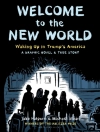“It may seem paradoxical to speak of such insights as liberating, or to find in the Underground Man’s impassioned rejection of rational humanitarianism a call to arms. Yet each age we live through as individuals demands a certain kind of book- just as each era thieves the last with a magpie’s lust for the gewgaws of thought. Oddly enough, now I come to look at Notes again- and examine it in the round- I discover that my revised impression of it as a text at once jejune and cynical, callow as well as wise, is not, perhaps, too far from reality.” -Will Self
““(Dostoevsky)… is the man more than any other who has created modern prose, and intensified it to its present-day pitch.” -James Joyce
Notes from the Underground is Fyodor Dostoevsky’s ninth novel, and considered to be one of the first examples of the existential novel. In this radically inventive work, an alienated former minor administrator in nineteenth-century Russia has broken away from society and withdrawn into an underground identity. With its piercing insight into political, social, and moral issues, this classic is one of the most provocative work of literature ever written.
In the first half of the novel, the unnamed narrator, a cynical recluse in 1860’s St. Petersburg, attacks the ideologies of inherent laws of self-interest; he is crippled with self-loathing, and bound by his contempt of certain political attitudes of his day. He welcomes any psychic or physical pain in his life as he believe it rails against the complacency of modern society. The second half, entitled “Apropos of the Wet Snow”, the narrator relates his alienated relationships he experiences with others, including old school chums and a prostitute named Liza, who is only demeaned in his misanthropic mind. A singular document of the depravity of human consciousness, this is one of the most powerful pieces of literature ever written.
With an eye-catching new cover, and professionally typeset manuscript, this edition of Notes from the Underground is both modern and readable.
Since our inception in 2020, Mint Editions has kept sustainability and innovation at the forefront of our mission. Each and every Mint Edition title gets a fresh, professionally typeset manuscript and a dazzling new cover, all while maintaining the integrity of the original book.
With thousands of titles in our collection, we aim to spotlight diverse public domain works to help them find modern audiences. Mint Editions celebrates a breadth of literary works, curated from both canonical and overlooked classics from writers around the globe.
O autorze
Fyodor Dostoevsky (1821-1881) was a Russian novelist, short-story writer, and essayist. His work probed profound depths of human nature, with an indomitable insight into man’s relationship with society, religion, and philosophical inquiry. Dostoevsky’s first novel, Poor Folks (1846) immediately established his literary reputation. In 1849 he was arrested for his subversive political activities and spent eight months in imprisonment and four years in a labor camp. These experiences were the foundation for many of his works, including his masterpiece, Crime and Punishment(1866) His work and ideas had an enormous influence on 20th Century literature, psychological theory, and literary criticism.












